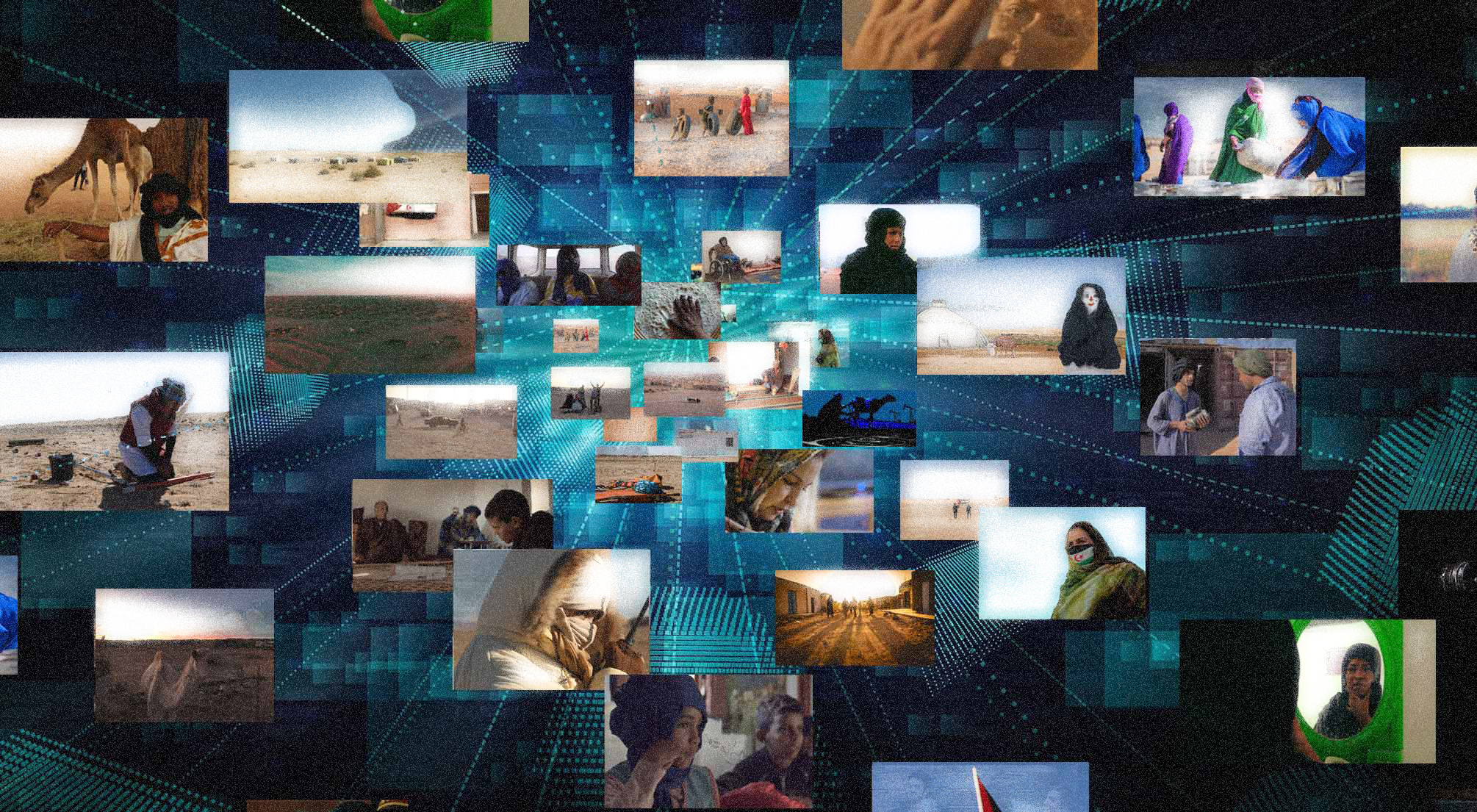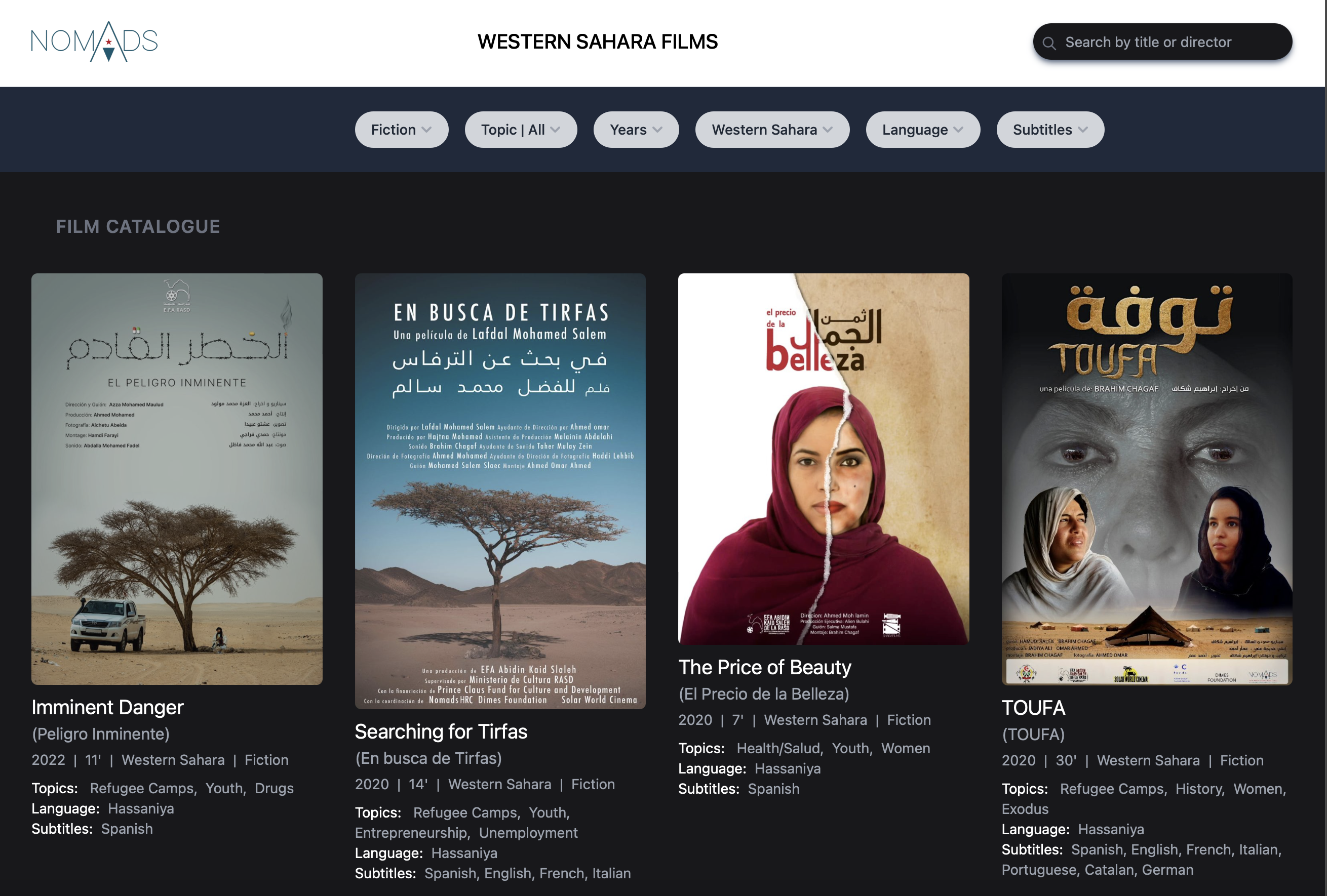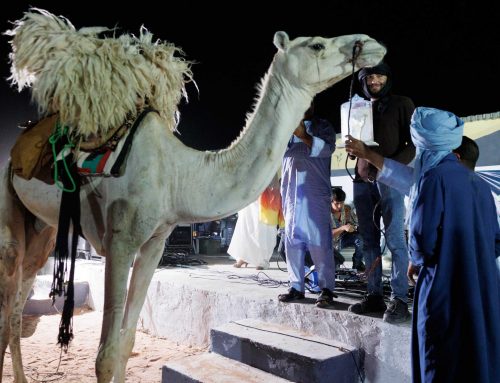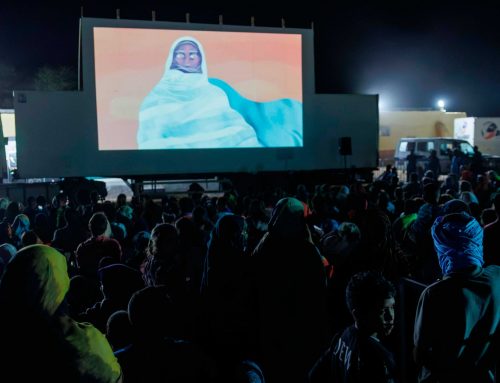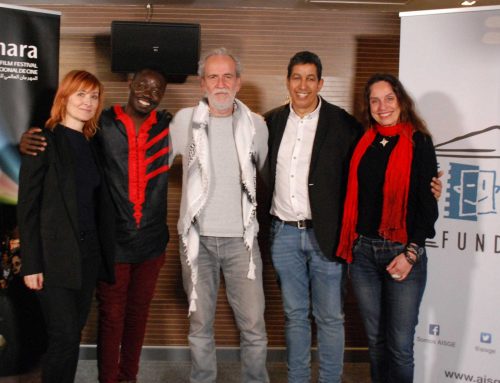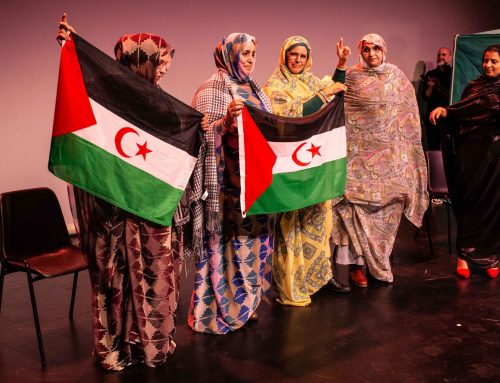FiSahara (the Western Sahara International Film Festival), an annual festival celebrated in the Sahrawi refugee camps in Algeria, today announced the release of an online catalogue made up of over 200 films about Western Sahara, making it the most extensive online film database focusing on the Morocco-occupied territory, known as Africa’s last colony. With around 230 productions spanning five decades, the catalogue, available in English and Spanish, was put together by Nomads HRC, a Madrid-based NGO that supports FiSahara’s international activities and that has organized scores of film screenings in the Sahrawi refugee camps and in festivals and other events all over the world.
The films are made by international filmmakers, journalists, activists, students, solidarity organizations and, more recently, by Sahrawis themselves as they pioneer a new art: Sahrawi cinematography. They span across genres, categories, nationalities and languages. Collectively, this body of work provides a unique audiovisual narrative of the recent history of Western Sahara and its indigenous people, including the end of the Spanish colonial era, the Moroccan military invasion and the exodus by half of Western Sahara’s population to refugee camps in Algeria, the 16-year war between the Moroccan military and the Sahrawi liberation movement called the Polisario Front, life in exile and under occupation and the current reality and struggle of the Sahrawi people for the decolonization of their homeland.
In addition to addressing these broad themes, some films are deeply intimate narratives about what life is like for a young Sahrawi refugee, or the painful memories of a formerly disappeared political prisoner.
The database, which includes trailers, synopsis, technical specs, posters, contact information and links to the films when available, allows users to conduct searches by themes, countries of production, years, language and subtitles. The catalogue acts both as a window into the history and present of cinema on Western Sahara and as an effective tool for anyone seeking to use film on Western Sahara for artistic, educational, research, media, advocacy or other purposes.
“Not long ago film did not exist in Western Sahara: our people are nomads, our culture is primarily oral and our story was rarely told by international filmmakers”, said FiSahara Director Tiba Chagaf. “In a short span of time, as FiSahara attracted more filmmakers and the Abidin Kaid Saleh Audiovisual School in the camps created the first generation of Sahrawi filmmakers, film has been embraced by my people and become one of the most effective tools to tell our stories. Finding this body of work in one place for the first time now gives us a better understanding of the diversity and reach of films on Western Sahara.”
A Rich, Collaborative Project in Constant Evolution
As more Western Sahara-themed films are released and older works re-surface, FiSahara and Nomads HRC’s team is inviting the public to contribute to the project, which has been in the works for a decade. “This database would not have been possible without the collaboration of filmmakers, activists and many others who have facilitated information to us”, said database co-creator Mayka Guerao, one of the founders of Nomads HRC along with Sara Pujalte and María Carrión. “We invite the public to contact us if they know of films not included in the catalogue, or if they see any errors”.
Carrión, who is also FiSahara Executive Director, hopes that the catalogue “facilitates the work of film festival programmers, activists, educators and others wanting to screen films on Western Sahara. Screening a film on this forgotten conflict and its tragic consequences on an entire people is one of the most effective ways of raising awareness and breaking the international silence that has surrounded the Sahrawis for almost half a century“. The catalogue’s rich diversity means that “it caters to many different audiences so that an elementary school teacher, a human rights researcher, a community activist or a festival programmer will all find films that adapt to their needs”.
Madrid-based Nomads HRC, whose mission is to support Sahrawi-led cultural, human rights and media projects, has released the catalogue to coincide with the fifth anniversary of the NGO’s founding. “It is our humble gift to the Sahrawi people in return for the honor of walking with them side by side, ” said co-founder Sara Pujalte.

